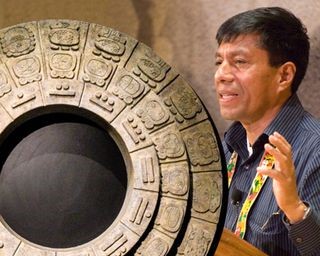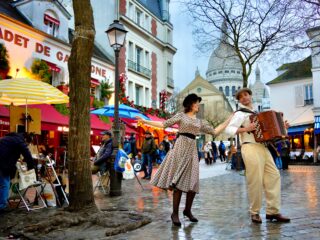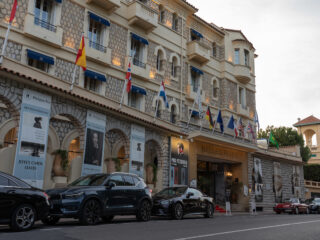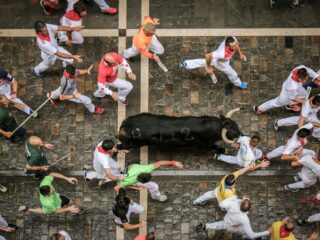By Jonathan Moore
Down And Out In Paris And London, George Orwell’s iconic memoir of his time spent working in Parisian kitchens and living jobless on London’s streets, was first published in 1933. It offers a bleak, humane and occasionally funny view of a world that often feels unhinged. Smoke-filled rooms, bars full of destitute eccentrics, labyrinthine hotels, gallons of wine, hunger, camaraderie, bitter and petty rivalries, hours upon hours of work, this is the Paris that Orwell recalls.
85 years on, my girlfriend and I ended up living in the same city, jobless and looking for work. Like Orwell, I eventually found it in a kitchen. I had not read Down And Out at the time, but it was recommended to me not long after.
‘Sounds like your life,’ a friend said, handing me a copy. He was right, in part. There were many similarities, not least among them the sweat, hard work and alcohol. What struck me most, however, was how much things had changed.
Down And Out’s first chapters are devoted to Orwell’s life as a lodger and drinker at the Hotel des Trois Moineaux. Orwell introduces you to an eclectic array of characters from the local area: a Bulgarian student and shoemaker, a Romanian man who will not admit he has a glass eye, an elderly couple who make ends meet by selling pornographic postcards, a mute sewer worker, a well-to-do man who brags about raping a prostitute.
Orwell isn’t exactly well-off during this period, but he does okay. He is working as an English tutor and makes enough to keep himself fed and watered. The hard times are yet to come. Most of all he seems settled. He’s been living here for some time now. He’s grown familiar with his surroundings and the eccentrics that fill them.
As a reader I found these early chapters alien and exciting. Orwell’s Paris felt so alive, a world away from the city I knew. I had not once experienced anything akin to the singular madness of the Hotel des Trois Moineaux. Then again, my lodgings weren’t technically in Paris at all.
The Latin Quarter, where the Trois Moineaux was situated, is very central. To rent there today would cost an arm and a leg, certainly too much for the near destitute lodgers of Orwell’s memoir. Like me, they would now find themselves pushed right to the city’s outskirts and even then would probably baulk at the prices.
It took me some time to find permanent lodgings and when I did it was outside the city boundary, in the 14th Arrondissement suburb of Issy-Les-Moulineaux. Relative to the Latin Quarter, Issy is modern: wide streets, 20th century buildings, sanitary and sane. Our fourth floor apartment wasn’t rented from a couple living in the same building, but from a quiet man who we hardly ever saw. Whispers of a more raucous time remained, in the Comptoir around the corner full of old men sipping Pernod from morning to late, in the fact we had to pay our rent in cash, the only contract we had a handshake and a promise. On the whole, however, things were polished, modern and overpriced. Even the Pernod at the Comptoir cost over four euros.

More than this, things were isolated. My girlfriend and I were happy enough. We had each other for company, along with the wealth of entertainment offered by the internet, but we did not know our neighbours. There was an Algerian pizza place downstairs, but it was nothing like the bar beneath the Trois Moineaux. If we wanted to see friends we would have to travel across the city, and the city had gotten big. It could take well over an hour to meet up with someone living on the far side. Inflation, social media, Youtube, gentrification and chance had all conspired to remove us from the world of Down And Out’s early chapters, if that world even existed anymore.
As the book progresses Orwell’s madcap but relatively stable existence at the Trois Moineaux is torn apart by a series of misfortunes. His room is burgled, he is dismissed by one pupil and cheated by another, he is forced to pawn his clothes only to discover they are worth next to nothing. He soon finds himself starving and jobless, desperate for a stroke of good luck. This comes in the form of his friend, Boris, who arrives, loaf of bread in hand, to tell him that there is work to be had in the Hotel X kitchen.
My girlfriend and I did not experience anything comparable to this during our time in Paris, but, prior to finding our isolated stability in Issy-Les-Moulineaux, we did undergo a period of reasonable uncertainty.
When we first arrived in Paris we booked five nights in a cheap hostel, hoping this would be long enough to find a flat. My girlfriend had a job lined up as an intern at a university, but I was also on the lookout for employment.
We booked appointments at several apartments across the city. The rents seemed expensive, but we were confident we’d be able to afford them once I was working too. What we didn’t foresee, however, was that no one would be willing to let us pay them. We had enough saved up for a deposit, but no one would consider tenants without a reliable income of far more than what my girlfriend alone was set to make. Some of the flats had blood on the mattress, dead bugs all over the floor, but we still got a firm no.
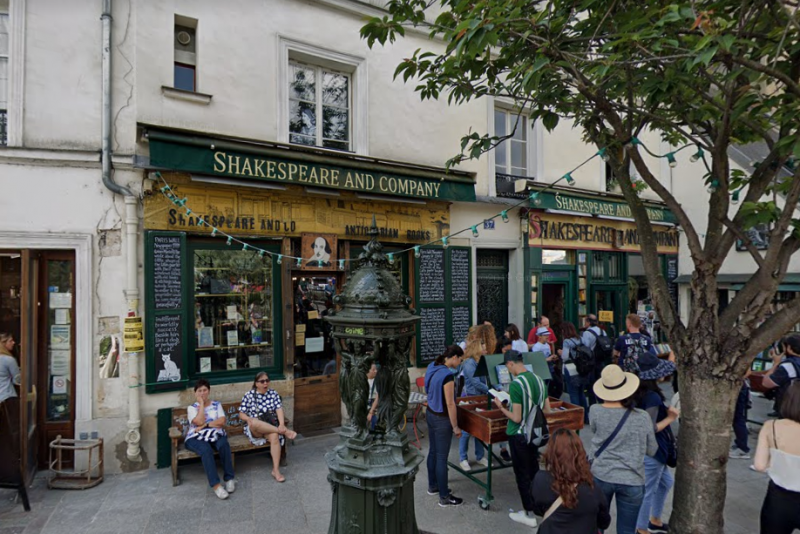
A blog suggested we look in Shakespeare and Company, an English bookshop founded by Sylvia Beach and famous for publishing James Joyce’s Ulysses. It told us they had several cork boards there that might be worth a look. Sure enough, that’s where we found our Issy-Les-Moulineaux flat, but it wasn’t available for another three weeks.
We put down a deposit, hoping the landlord wouldn’t cheat us, and started looking for somewhere to stay in the meantime. The deposit had wiped out a healthy chunk of our savings, but if we found somewhere cheap enough we’d be able to make them last, we hoped.
We reached out to as many budget AirBnbs as we could find and eventually earned ourselves a reply. Stefan, from Villejuif, had room on his sofa. We were welcome to take a look that evening. He wasn’t sure if he wanted people staying, but we could discuss further once we got there.

The flat was small and stunk of weed. It turned out the reason he’d wanted to meet us before agreeing to let us stay was that he was drying out his plants and wanted to make sure we didn’t mind the smell.
‘It’s fine by us,’ we said. He unfolded the sofa-bed, showed us the toilet, his pots and pans.
‘Make yourselves at home,’ he said. He sat down on a chair next to our makeshift bed, grabbed a PS3 controller and started playing Grand Theft Auto.
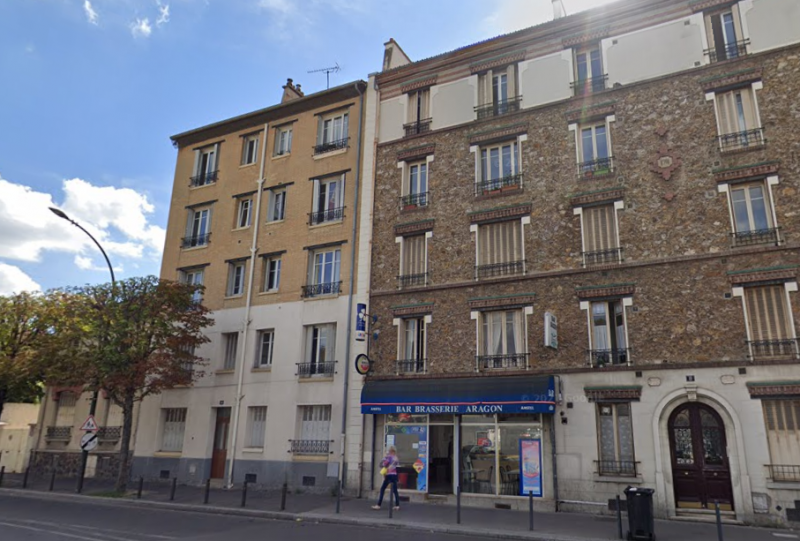
Villejuif was as good a place as any to start my job-hunt. It was some way out of the centre, but ragged and lively, much closer to the madness of the Trois Moineaux than anything I would later see in Issy-Les-Moulineaux. The nearest Comptoir was cheap, full of gambling and open late. I enjoyed trotting past on my way to and from my many trial shifts.
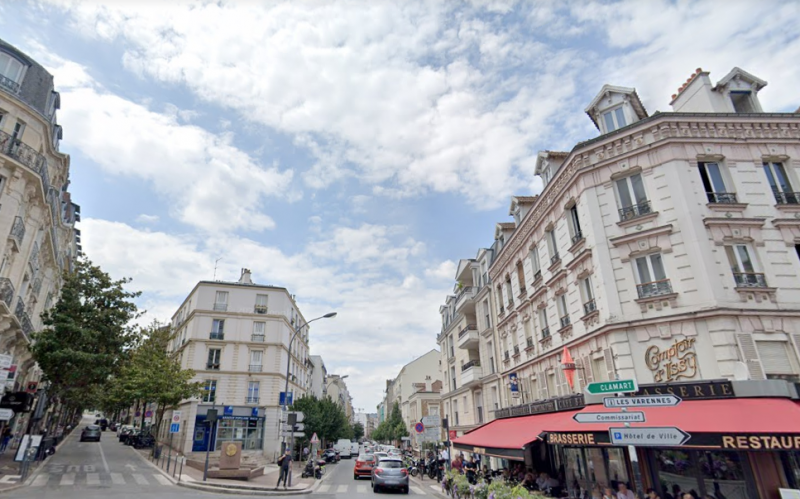
I made a French CV as best I could and applied to anything and everything. Bars, kitchens, supermarkets, cleaning companies, removal jobs, if they had a vacancy I wanted to be the one to fill it. Unfortunately, not many places were in the market for non-French speakers with hardly any experience. More than once I was dismissed after just an hour’s trial for sheer incompetence, but I kept on applying until eventually I found myself at a cocktail bar in South Pigalle, the Maria Magdalena.
The Maria was closed when I first arrived. It had dark blue walls and its name was written in gold letters above its windows. I was in the right place. A little up the road were the hustlers and late night tourist dives of Pigalle, but this neighbourhood seemed nice enough. I knocked on the door.
A handsome, bearded face greeted me. Then another. The owners were identical twins. They showed me around. The roof was decorated with old hardbacks. A caged spiral staircase lead to a smoke-scented basement with a swing and seedy red neons.
At the bar a group of the twins’ friends were sitting, enjoying afternoon drinks.
‘Do you like cocaine?’ The twins said. I shrugged. Their friends chuckled, sipped cocktails.
‘We never like cocaine!’ The twins said. More laughter.
‘We always like cocaine,’ said one of their friends.
The bar was packed that night. I wasn’t much good at making cocktails, but the twins needed all the help they could get. I spent most of the evening operating the dishwasher and running glasses. The twins seemed happy enough. Every now and again they would pour me a half pint and, with a serious look, say, ‘for strength, not for drunk.’
At least one of them was hammered. Maybe both.
At around 4 in the morning they gave me a fisftful of notes, called me a ‘warrior’ and asked me how I was getting home.
‘I think there’s a night bus?’ I said.
They nodded, scribbled a rudimentary map on the back of some till-paper and sent me on my way.
‘20 minute walk,’ they said. ‘We’ll be in touch.’ I stumbled half-cut through the lamp lit streets of Paris and, after 45 minutes or so, found the bus-stop. The twins emailed me a couple of days later and said they wanted me for another trial, this time in the kitchen.

Orwell got his job as a plongeur at the Hotel X mainly because he spoke English, and it was the same with me at the Maria. The chef was Irish and didn’t speak much French. The rest of the kitchen team were from Bangladesh. English was our common tongue.
Both the Maria and the Hotel X were sweaty, booze-fuelled working environments, but the similarities don’t go much further than that. Whereas the Hotel X was huge and exploitative, its workers subjected to a cruel caste system, the Maria was small and the twins treated us well. Orwell stole booze to make-up for his low wages; I was given it on top of what was already quite a generous salary.
This is not to say the city as a whole is, today, full of beneficent bosses and caring workplaces. The Maria was most likely an exception. The twins wanted to save the world and saw treating their workers fairly as a crucial first step in this. They were passionate about the environment and vegan food and could frequently be heard shouting as much whilst prepping the bar for the evening ahead. Vegan food and sex, those were their two favourite topics of conversation.
As I read of Orwell’s grueling 11-13 hour shifts at the Hotel X and the Auberge (his subsequent workplace), I felt our experiences of Paris couldn’t have been more different. The restaurants we worked in were polar opposites, and that was only the tip of the iceberg. Where the contrast was at its most stark was in the streets, our lodgings, the city as a whole.
To rent now requires a mountain of bureaucracy; workplaces issue contracts and pay monthly. This was not the case in Orwell’s time. Today, those of us with jobs have more rights and a greater degree of safety and security, but less freedom. The anarchic insanity of the Trois Moineaux and co has been pushed to the fringes and maybe even eradicated. The city’s most lively and destitute communities have been destroyed.
My experience of Paris was admittedly limited and it is likely that another person would have seen a different side to the place entirely. Certainly the pain and hunger that Orwell suffered still occurs daily on its metros and in its streets. It nevertheless remains true that the city centre has become gentrified, clean, full of rules and distractions. Times have changed and, with this, something has been lost. Down And Out In Paris And London is not a happy book by any stretch of the imagination, but there is a magic to the world Orwell described. It might just be the power of his prose, but I can’t help but wonder whether life might be a little less rich now that it is gone.
Jonathan Moore is a short story, script and blog writer based in Sheffield, UK. He is currently working on an animation project in collaboration with local artists and a short story collection inspired by the works of George Saunders. You can find his blog at https://thesecret.city/things-


